6 Fundamental Plants for Skincare
6 Fundamental Plants for Skincare
Learn more about the 6 Fundamental Plants for Skincare.
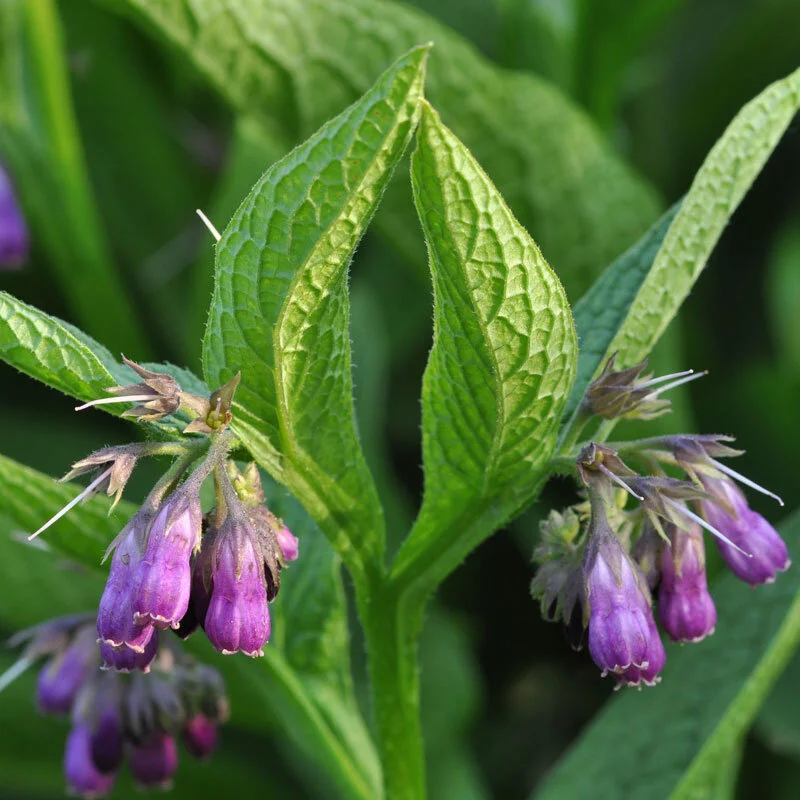
Comfrey (Symphytum officinale) -particularly effective for treating wounds, burns, skin ulcers, eczema and any other abrasion of the skin. Comfrey’s bioactive compounds (includes allantoin, mucilage and rosmarinic acid) demonstrate anti-inflammatory and anti-oxidant properties, stimulate tissue regeneration, and encourage healing by forming a strong protective film, soothing and cooling the wound.
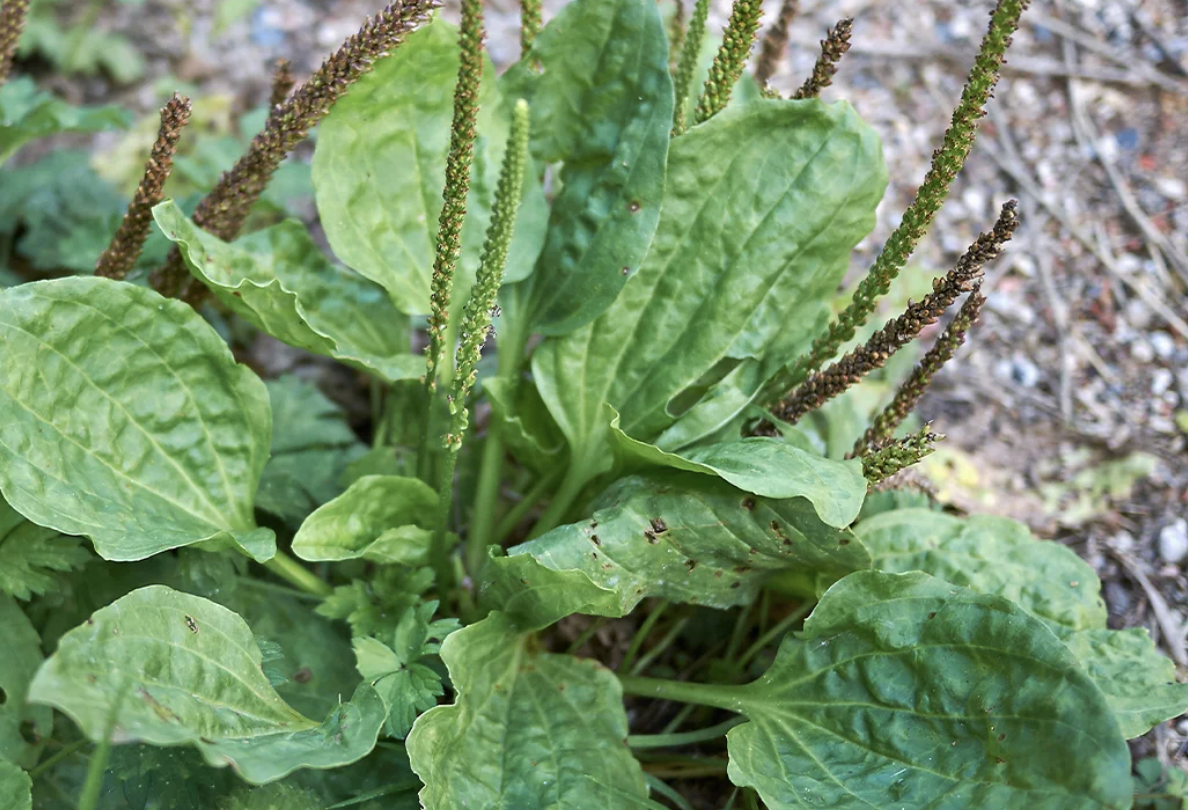
Plantain (Plantago major) – decreases the heat and pain of inflammation, neutralizes the venom of bee stings and draws out the stinger. Valuable for healing deep wounds, old wounds, burns and rashes. Cools and reduces swelling. Research studies have demonstrated that plantain has proven anti-microbial action and stimulates healing. Alkaloids in plantain are responsible for improvement of the healing of incisions by increasing tensile strength of the scar tissue (reduces scarring).
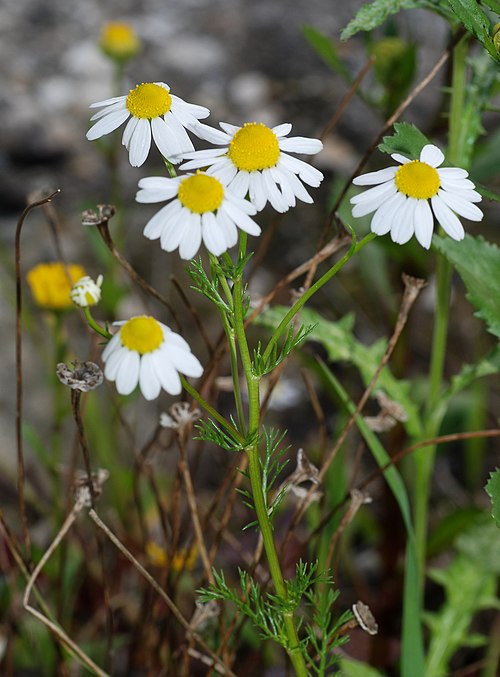
Chamomile (Metricaria chamomilla, M. recutita) – used topically to nourish the nerves and repair nerve damage as well as to relieve pain and reduce inflammation caused by infections and wounds. With proven anti-bacterial, antifungal, anti-oxidative, analgesic and antiseptic action, it is useful for slow-healing wounds, skin eruptions and infections, such as shingles, boils, hemorrhoids, etc.
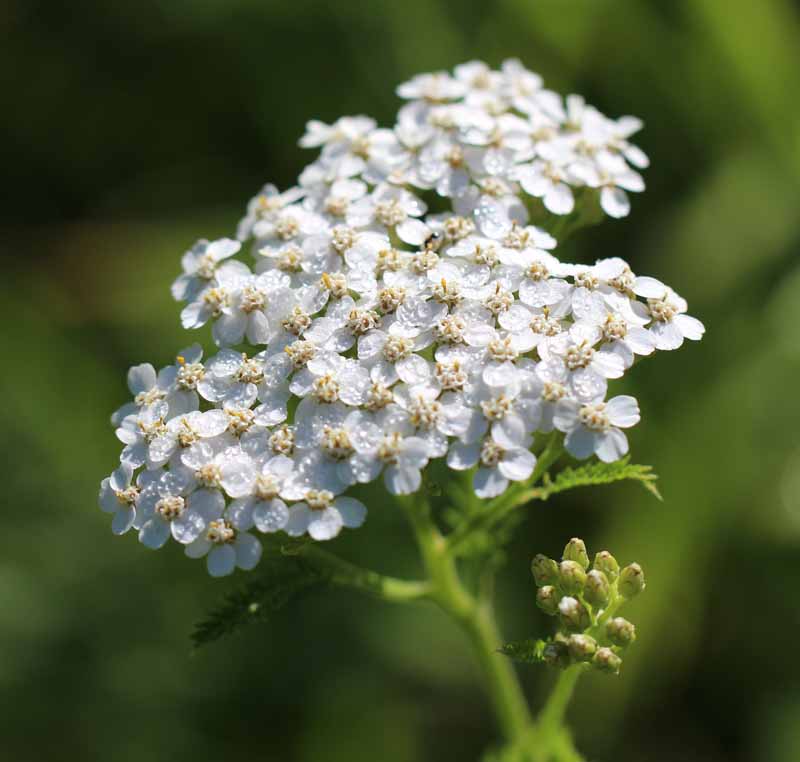
Yarrow (Achillea millifolium) – an excellent wound healer and can calm inflammatory skin issues. The chemical achilleine present in this herb is known for its ability to stop bleeding. It is a natural antiseptic, so it can prevent wounds from getting infected. The combination of yarrow’s astringent, antiseptic and hemostatic action and its ability to dull pain make it invaluable in the promotion of healing in wounds.
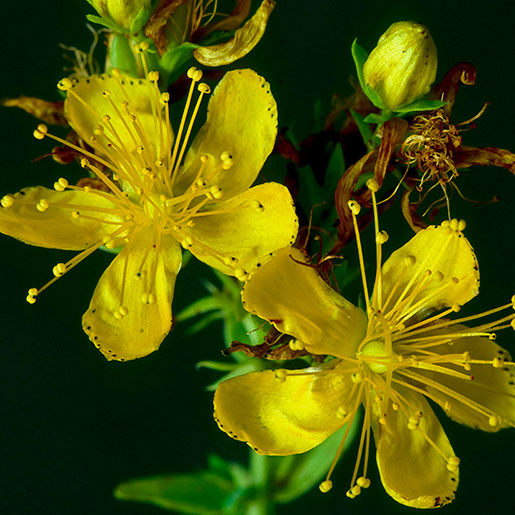
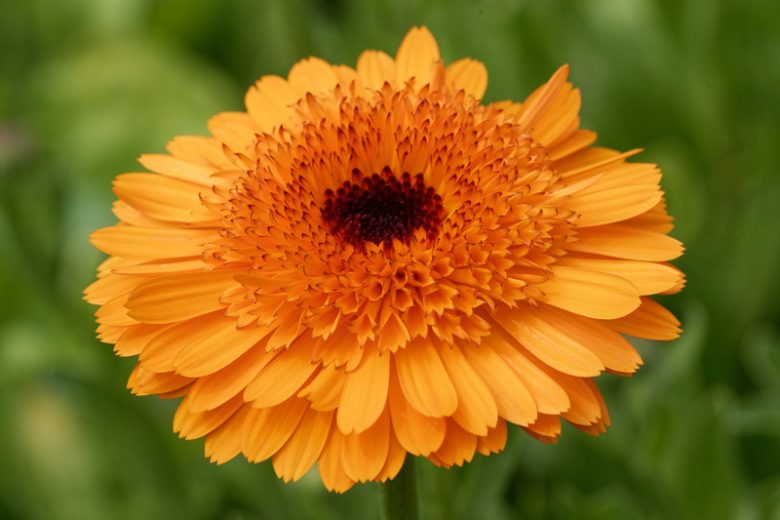
Calendula (Calendula officinalis) – useful for hard-to-heal wounds because it promotes the regeneration of healthy cell tissue and enhances skin hydration levels. Calendula also expresses astringent, anti-inflammatory, anti-microbial and anti-fungal properties. It is rich in bioactive agents effective against UV-induced skin damage. In essence, these anti-oxidants behave as anti-aging compounds and, through stimulating collagen synthesis, make skin fresh, healthy and young.
NOTE: This information on the 6 fundamental plants for skincare is a compilation of information from many resources. It is not intended to treat, cure, or diagnose a disease
My Mission: the promotion of individual and environmental health globally.
Copyright © 2025 Welcome Harvest LLC | Privacy Policy | Terms of Use | Return Policy | DMCA
